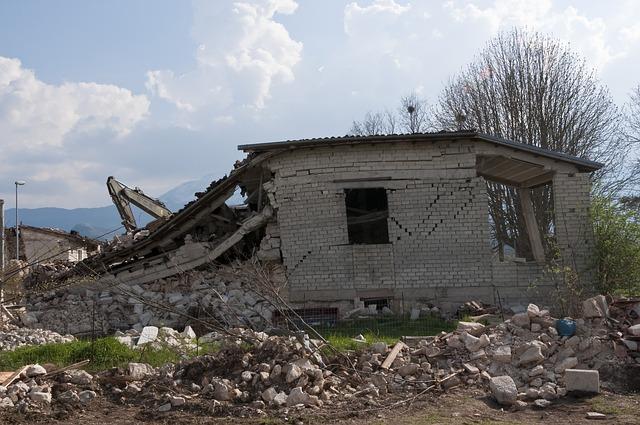When planning a trip, few travelers anticipate the disruption that natural disasters can bring. Yet, as unpredictable weather patterns and geological events become increasingly common, understanding the scope of travel insurance has never been more crucial. This article delves into the specifics of travel insurance coverage concerning natural disasters, providing you with the essential knowledge to make informed decisions before your next journey. By exploring what is typically covered, potential exclusions, and the steps to take in the event of a natural calamity, we aim to equip you with the confidence to travel smartly and securely.
Understanding Travel Insurance Policies and Natural Disasters
When it comes to travel insurance, understanding the nuances of coverage for natural disasters is crucial. Most travel insurance policies cover unforeseen natural disasters, but the specifics can vary significantly. It’s essential to check the policy details to determine what is included. Typically, coverage might encompass:
- Trip cancellation or interruption: If a natural disaster makes your destination uninhabitable or your travel becomes unsafe, you may be eligible for reimbursement.
- Emergency evacuation: Some policies cover the cost of evacuation if a natural disaster occurs while you are at your destination.
- Delayed or missed flights: If a natural disaster causes delays or cancellations, your policy might cover additional expenses incurred.
However, it’s important to note that coverage often depends on the timing of the disaster relative to the purchase of your insurance. Pre-existing conditions, such as a hurricane already forecasted, may not be covered. Always review the fine print and consider consulting with your insurance provider to ensure you have the right protection for your travel plans.
Key Inclusions and Exclusions to Watch For in Your Coverage
When evaluating your travel insurance policy, it’s crucial to understand what’s included and what’s not, especially regarding natural disasters. Key inclusions often cover trip cancellations, interruptions, or delays caused by events such as hurricanes, earthquakes, or floods. If your travel plans are disrupted due to a natural disaster, many policies will reimburse non-refundable expenses or additional costs incurred, like lodging and transportation. It’s also common for policies to offer emergency medical coverage if you are injured during such an event.
On the flip side, there are critical exclusions to be mindful of. Some policies might not cover natural disasters that are foreseeable or predicted, meaning if you purchase insurance after a storm has been named or a warning has been issued, you might not be covered. Additionally, policies might exclude coverage if you travel against government advisories or if your trip was booked to an area with a known natural disaster risk. To ensure you’re adequately protected, carefully review your policy’s terms and conditions and consult with your provider if any clauses seem unclear.

Steps to Ensure Comprehensive Protection Against Natural Disasters
To fortify yourself against the unpredictability of natural disasters, it’s essential to take strategic steps before embarking on your journey. Start by researching your destination’s climate and historical weather patterns to anticipate potential risks. Consult local travel advisories and heed government warnings to ensure you have up-to-date information. It’s also prudent to prepare a comprehensive emergency plan, which includes identifying local emergency services and having a list of contacts for embassies and consulates.
Equip yourself with essential tools: Consider packing a basic emergency kit that includes items like a flashlight, first-aid supplies, and a portable phone charger. Stay informed by signing up for alerts from weather agencies or travel apps that provide real-time updates. Don’t forget to review your travel insurance policy thoroughly to understand its coverage concerning natural disasters. Look for policies that offer benefits like trip cancellation, evacuation assistance, and coverage for additional expenses incurred due to unforeseen events. By taking these steps, you can ensure a higher level of preparedness and peace of mind as you navigate the uncertainties of travel.
Expert Tips for Choosing the Right Travel Insurance Plan
When navigating the complexities of travel insurance, making an informed choice can ensure peace of mind during unforeseen natural events. Here are some expert tips to guide you in selecting the most suitable plan:
- Understand Coverage Specifics: Not all travel insurance plans automatically cover natural disasters. Look for policies that explicitly include coverage for events like hurricanes, earthquakes, and volcanic eruptions.
- Check the Fine Print: Policy terms can vary significantly, so it’s crucial to read the fine print. Pay attention to definitions and exclusions related to natural disasters to avoid unexpected surprises.
- Consider Trip Duration and Destination: Your travel insurance needs may differ based on the length of your trip and your destination’s susceptibility to natural disasters. Research the area’s historical climate data to make an informed decision.
- Assess Your Risk Tolerance: Evaluate how much risk you’re comfortable with. If you’re traveling during a season known for severe weather, opting for comprehensive coverage might be wise.
By taking these steps, you can tailor your travel insurance plan to best protect against the unpredictability of natural disasters, ensuring your travels remain as stress-free as possible.

